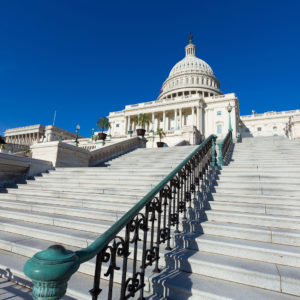There are many silly days of observance scattered throughout the year, but one fake holiday presents a real, hidden message lawmakers in Washington should heed.
January 9, 2017, is “National Clean Off Your Desk Day,” an unofficial made-up holiday carrying all the gravitas of other fake celebrations, such as Valentine’s Day and “Life Day,” which comes from the popular film series “Star Wars.” Celebrants of Clean Off Your Desk Day are encouraged to take this “opportunity to begin your new year with a clean and organized work space.”
Although the holiday is, for all intents and purposes, decidedly fake, there’s a real message for lawmakers looking for actionable ways to get Americans back to work and to help workers regain a perception of opportunity some feel has been lost over the past decade. Instead of scrubbing their desks, lawmakers should be scrubbing the reams of government rules and regulations, removing outdated and ineffective regulations and restrictions, and unshackling American workers’ potential to get ahead in the world.
The federal government’s chokehold on U.S. workers has grown tighter and tighter over the past century. In 1936, the Federal Register, an official government registry of all new and proposed federal agency regulations and public notices, published just over seven pages of rules every day. In November 2016, the Federal Register’s total size peaked at 92,830 pages, or about 254 new pages of regulations for every day of the year. If the federal government’s power over workers were represented by a breadbox in 1936, it would now be comparable to a three-story building.
By reintroducing and passing the Searching for and Cutting Regulations that are Unnecessarily Burdensome Act (SCRUB Act) in 2017, lawmakers would take a concrete step toward clearing out the regulatory deadwood and cruft that have built up over decades of government expansion, thereby reducing unnecessary costs borne by U.S. job creators.
House lawmakers passed the SCRUB Act in early 2016, but it failed to make its way out of the Senate.
The SCRUB Act, if it were ever signed into law, would create an independent commission to review and identify outdated federal regulations. This team of SCRUB-ers would review the Code of Federal Regulations — a book so long it takes more than 1,240 pages just to print the index — and flag useless and outdated government rules for deletion by lawmakers each year.
According to the Competitive Enterprise Institute, the cost of complying with government regulations represented a “hidden tax” of about $5,888.90 for every man, woman and child in the United States. CEI says these regulations create inefficient processes and useless paperwork that amount to $1.9 trillion in waste.
Instead of removing individual, costly regulations in a piecemeal fashion, lawmakers could repeal thousands of unneeded rules in one pass, by making into law the SCRUB Act, which would then repeat the process each year, saving about $285 billion in wasted effort and money annually.
In 2017, lawmakers in Washington should resolve to clean out the current jungle of harmful regulations and rules, thereby lightening government’s burden on workers and business owners. The SCRUB Act, or something like it, would be a great way to start the new year — and every year afterward — with a fresh start.

